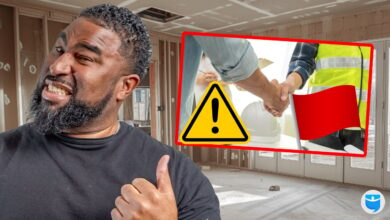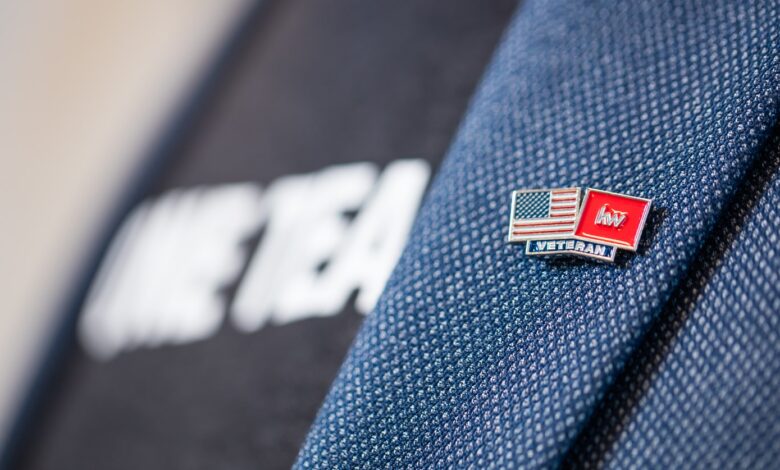
Spirit of Service: Six KW Community Members Share Their Military and Real Estate Journeys
[ad_1]
November 11 marks an important day of appreciation for those who have served the United States through their military service. Whether it be the Army, Navy, Marines, Air Force, Space Force, or in the Coast Guard, National Guard, or reserve, many Keller Williams agents and associates have committed themselves to selflessly serving the United States of America and protecting its people and their freedom. Today, we are thinking of our veterans with gratitude and deep appreciation for their service.
Our veterans, active-duty military members, and military spouses, partners, and families are not strangers to making sacrifices, nor to the pressures that come with constantly moving, leaving family behind while serving, and transitioning out of the military. Many of our partners, agents, and team members have experienced these situations themselves, and many serve military and former military clients within their business pursuits. In order to address the unique needs the military community experiences when it comes to homeownership, Keller Williams presents KW Military: a community established to recognize and support active duty and veteran military, as well as their family members. Its mission is to honor agents’ service and sacrifice by providing the tools, training and camaraderie necessary to build a big business and an even bigger life.
In honor of Veterans Day and the launch of the new KW Military community, six Keller Williams agents, partners, and team members share the intersection between their service and business.
Contents
An Eternal Service State of Mind
John Miller, Veteran, Air Force, and Amy Miller, Active Duty, Air National Guard
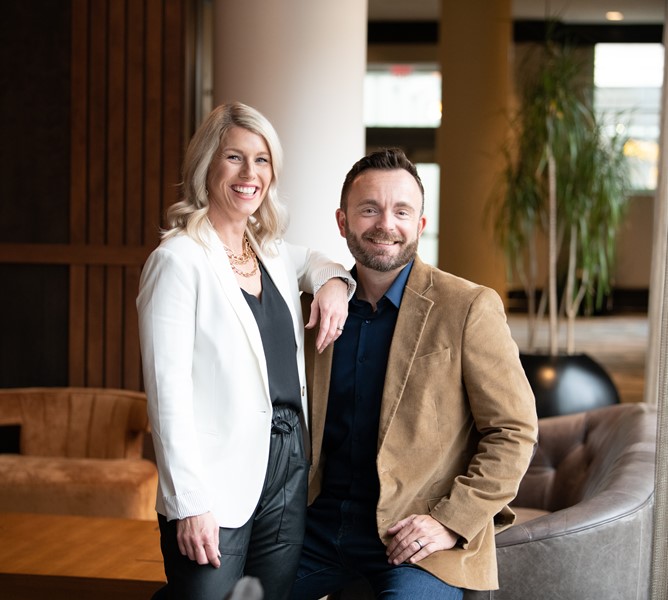
For Amy Miller, the military has always been a natural part of life. Both of her parents were in the Air Force, as was her older brother. Her younger brother is still currently serving. “Being in the Air Force, I have a job that allows me to focus on my family and not have to worry about being gone all the time,” Miller, who is on active duty as a senior enlisted advisor and has been in the military for nearly 20 years, says. Her husband, veteran John Miller, navigated a different path to joining the Air Force. “College wasn’t in the cards,” he shares. “So I served from 2000 to 2014. I did 14 years of active duty in the Air Force, five deployments, two of which to Iraq.”
John has been in real estate since 2016, first selling as an individual agent and later as part of a husband-and-wife team with Amy. In 2020, the Millers folded their real estate business with their mentors, Meg and Scott Panella of Team Panella, with John serving as director of operations on the team and Amy working as a sales agent on top of her active duty placement. Throughout their careers, the pair and blended family (both John and Amy brought children into their marriage), have learned a lot.
Outfront: What are some valuable life lessons you’ve learned while serving?
Amy Miller: A huge life lesson and something we try to instill in our kids too is that respect is earned, not given. You are around a lot of people and a lot of different styles of leaders, and you see a lot of negativity and positivity. You can’t go into a situation expecting somebody to respect you because of your rank or your position. The same goes into civilian life. You can’t expect someone to give you respect because you want it.
John Miller: The three P’s: pride, professionalism, and performance. Those are the three things I felt were the most important in my job and those that I focused on in my leadership. At the end of the day, if you have pride in who you are, what you’re doing, and what you represent, it will impact how you operate and how people view you. Professionalism – anything we do in life should absolutely be done at the highest possible standard. And performing at a high level, knowing what you’re supposed to do and how you’re supposed to do it.
Outfront: Could you describe the experience of being a military couple?
AM: When we were both active duty, we got married and moved up to North Dakota. We had no family and no friends there, and we were both working 15- to 16-hour days. We were high fiving at the door. Raising a military family takes a village, because you’re relying on help from people. It’s always a learning experience, because you just don’t know what will happen from day to day.
JM: Spouse life is tough. I’ve always been the one that was deployed, so to have to run the house while she was deployed was a different game. When you’re not here for the day-to-day, there’s an element that you don’t see and don’t feel.
Ernie Gonzales, Veteran, Army
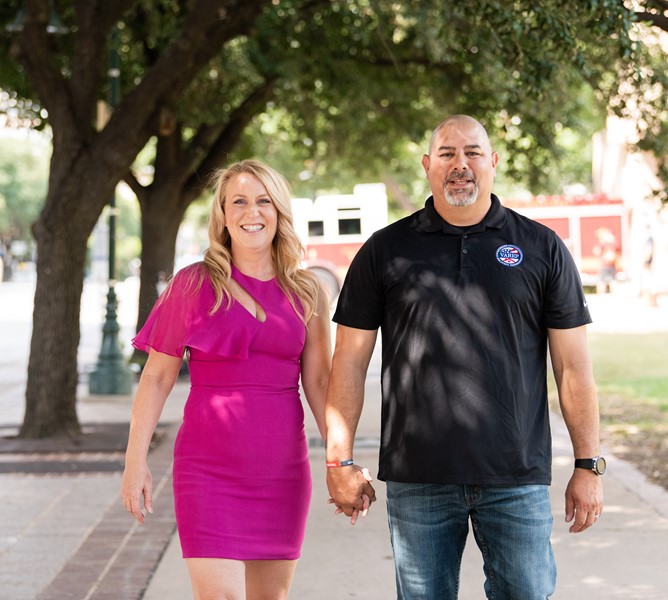
After declining a baseball scholarship at the University of Southern California, Ernie Gonzales opted instead to join the Army. “My dad was a Vietnam vet, so there was a family connection,” Gonzales shares. “I joined the Army as a military police officer. It was one of the greatest experiences of my life. I was there for the unification of the city of Berlin, Germany. It was one of my most historical proud moments,” Gonzales, who spent 10 years in the military starting in 1989, adds.
Today, Gonzales runs a referral-based business alongside his wife, Leah. “Our business is geared toward the military, police officers, firefighters, teachers … so I worked on a lot of HUD programs and my wife did a lot of REO business. And, in 2013, I got involved with the Veterans Association of Real Estate Professionals (VAREP),” he says. Through his work, Gonzales has helped provide housing for veterans with a total of eight houses donated in his local Las Vegas, Nevada, and 46 houses nationally.
Outfront: What does it mean to have a community that understands both the military and the real estate aspects of your life in KW Military?
Ernie Gonzales: To be able to be with like-minded people that have a desire to serve our veterans and our military and be able to do that through another passion, which is real estate, means everything. To see what KW’s vision is and to be a part of the foundation of KW Military is probably one of my highlights of being in real estate – to be a part of something that’s going to affect thousands, if not millions of people within the next few years.
Outfront: What would you like our readers to know about yourself, your business, or your military involvement?
EG: My wife is 100% with me on this. She is my military spouse who’s always backed me on every idea. I encourage people in the real estate business who are military focused that want to donate and build a community beyond their market center and KW Military to get involved in VAREP. It is an amazing organization that helps build communities and helped save my marriage and my life.
Lloyd Steere, Veteran, Marines
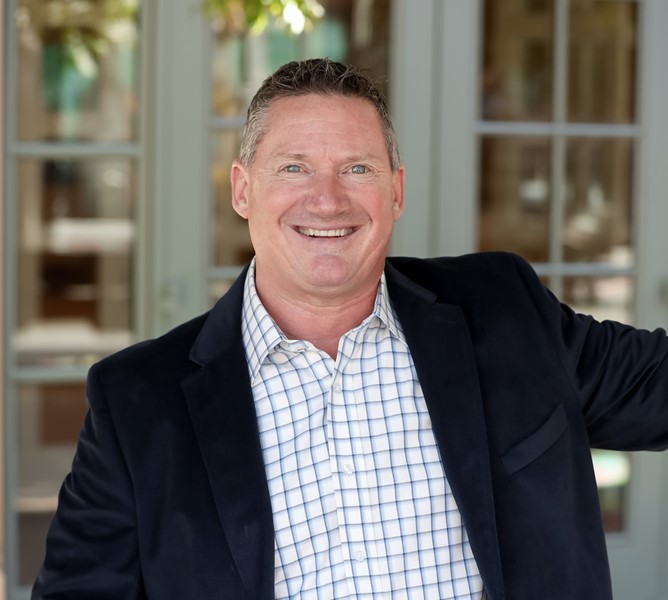
One day, while in the video arcade section of the mall where he was working a seasonal retail job after “flunking out of” college, Steere got approached by a sergeant with information about the military. Initially hesitant, Steere ultimately decided on a meeting. “My dad, who had been in the Navy, is on one end of the table. I’m at the other end, and two Marines are sitting across from each other on the sides, and they lay out these badges with different words on them – education, opportunity, etc,” Steere recalls. “They told me to pick the ones most meaningful to me. So, I didn’t really pick the Marines. The Marines picked me.”
Since serving for six years between 1985 to 1991 as a navigation technician setting up forward arming and refueling point stations for attack helicopters, Steere spent 25 years in the corporate world, and eventually embraced real estate. He is currently a part of the Swanson Real Estate Team in California, expecting about $30M to $40M in gross sales for this year. Steere’s time in the Marines has played a huge role in the way he views his real estate business.
Outfront: What is a major life lesson you’ve learned in the Marines?
Lloyd Steere: Owning every situation you’re in. A lot of that comes from accountability within the service. An example of this in my real estate business: I recently had a listing where my client was selling for a deceased person she basically called her second mother. She was listed on the trust as the trustee. In a team miscommunication, a hauler was sent to the house of this client and started moving the belongings in the home into the back of his trailer. Instead of making excuses, I called the client. I said the lines of communication weren’t clear and apologized. I knew we could not bring any of those items back to life, so I offered to make a charitable donation in the deceased’s name to a charity of her choice. She just said ‘I understand. Thank you for being honest and for taking ownership.’ Just by owning it, I turned what was an absolute disaster into the best testimonial I’ve ever gotten from a client.
Outfront: How does your military experience influence the way in which you do business?
LS: I love feeding my inherent nature and soul of giving relating to organizations such as VAREP, or moments like today, when I was teaching part of the Ignite 2.0 course, because I lead that effort within our brokerage. I was talking to clients today about being accountable, calendaring for times, and one of the things that you do is first you calendar for yourself. And one of the things that I calendar for myself is an attitude of gratitude. In the Marine Corps, it’s drilled into you: God, Country, Corps, Family. When you have that hierarchy, you’re naturally a giving person. What the Marine Corps teaches you is that you’re not in it for individual accomplishment or recognition.
Deana Watson, Army Special Forces Military Spouse

Deana Watson has been with Keller Williams for as long as she has had her license – since 2011. She runs a team in Fayetteville, North Carolina – the location of the United States’ largest military base, Fort Bragg, but she is personally gearing up to make a move to Tennessee. In addition to her business, she serves 30 clients on a weekly basis as a KW MAPS Coach.
As a military spouse married for eight years, Watson is no stranger to major life changes. “We’ve moved probably seven times in the last seven years, making this upcoming move number eight,” she shares. Watson also shares that due to her husband being in the Special Forces, her situation looks a bit different than a traditional military spouse: “If you’re in the Army, you might leave for eight or nine months and then be home. In the Special Forces, you might leave for four months, come back for one month, leave again for three, come back for one, and go back overseas for six. It’s a lot more in and out all the time, so everything is very much transient in my life.” These circumstances have greatly informed the way Watson does business.
Outfront: How has your military affiliation impacted the way in which you do business?
Deana Watson: One thing that I think the military teaches you, whether you’re in the military or a family member, is that life is going to throw things your way, and you have to handle things quickly and move fast. I move on quicker from problems than most people. I’m looking for how to make something work instead of why it won’t. And I’ve also learned over the last couple of years that you have to give yourself grace if something happens and you don’t know how to handle it. The other thing that it’s shown me is that people say to think outside the box, but there really is no box. You’re just thinking in different ways. What is making me comfortable moving is understanding that you truly have to succeed through other people in this life, because you’re not going to stay where you are for very long. On average, we stay in a place for two, three years and then we move. If you want to have a really large business and still want to do that while being a part of your family and moving with your spouse, you have to find a way to make it work.
Outfront: What are some preconceived notions people may have about military spouses?
DW: There are a lot of preconceived notions, but one thing I think a lot of people don’t understand is that you can’t really know what you sign up for as a military spouse or as a service member. One of the things the general public does not understand is the resilience of a military spouse, or how hard it is to keep a strong relationship with your person when they can’t be the person that you depend on most of the time. You have to figure out how to live life by yourself. I know people who have been robbed, or worse, and their spouse hears about it while they’re deployed and on a mission. And they can’t be sad or come home. It’s very hard. I’m not wearing that as a badge of honor. We do choose the hard, but it’s still something that people don’t see. I think it’s a good thing for everybody to come from curiosity, and ask questions about the life we are in. People are willing to talk about it most of the time.
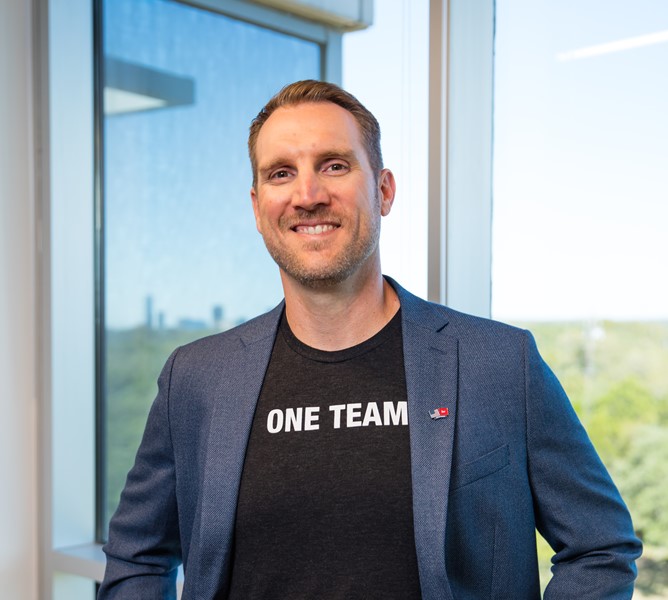
As the kwx head of business development and partnerships, Travis Peace is responsible for building new income opportunities for KW agents and market center leaders that come from building partnership platforms, or joint ventures, with Keller Financial Services. For 2022, Peace and his team have ambitious goals to create multiple such partnerships on a monthly basis.
Before building a career in corporate leadership, Peace graduated from the Naval Academy, where he played college football and majored in quantitative economics. Upon graduation, he spent five years as a surface warfare officer. “I was a nuclear engineer on aircraft carriers,” he explains. His Navy experience has been paramount to his success within the rest of his career.
Outfront: What are some of the most valuable lessons you’ve learned while serving?
Travis Peace: The sense of responsibility, the discipline, the sense of teamwork, and the humility of being surrounded by folks from unbelievably diverse backgrounds. You learn that it doesn’t matter how much money you had growing up or where you come from. Everybody has a job to do and you have to rely on everybody else doing the job and you have to help everybody else do their job. There is no room for ego and there’s no room for selfishness. Learning how to lead and how to be a part of a team at that early of an age, when you’re still kind of learning how to be an adult, leaves an impact.
I also learned pretty quickly that you need to admit what your weaknesses are and find folks who can fill those weaknesses to support your team and put your ego aside. If you are able to do that and find people who can make your team better because they bring something to the table that you can’t bring, that’s going to help everyone win.
Outfront: Why would you encourage agents to become involved with KW Military?
TP: Because it helps set themselves apart and find a common connection. If there’s one thing that veterans in the military community know is that there’s instantaneous trust that comes with the commonalities of the experiences, and even the language we all use. It is just a quick way to establish trust with potential customers and other agents or partners. So, why wouldn’t you use that unique experience as a way to differentiate yourself within the industry?
Building Connections in Your Community
As you may have learned from this piece, every veteran, active duty member, and military spouse has a different story. So take some time today, tomorrow, and every day to learn about these stories by inviting someone to share their own story. “Whether it’s someone you know, someone you work with, someone you’ve helped to sell real estate to – invite them out to lunch or coffee. Learn their story, listen to them, and I guarantee you’re going to come away with a different opinion, reflection point, or inspiration,” encourages John Miller.
[ad_2]




